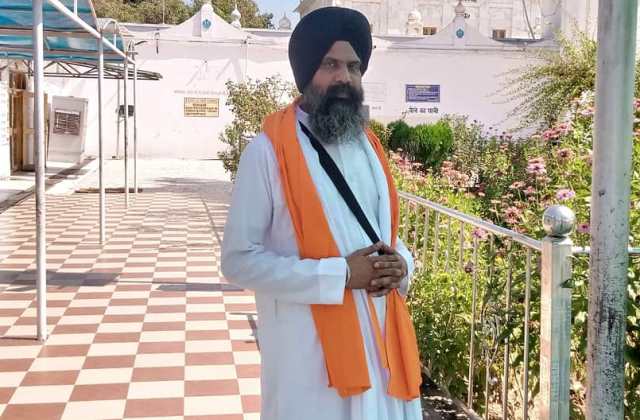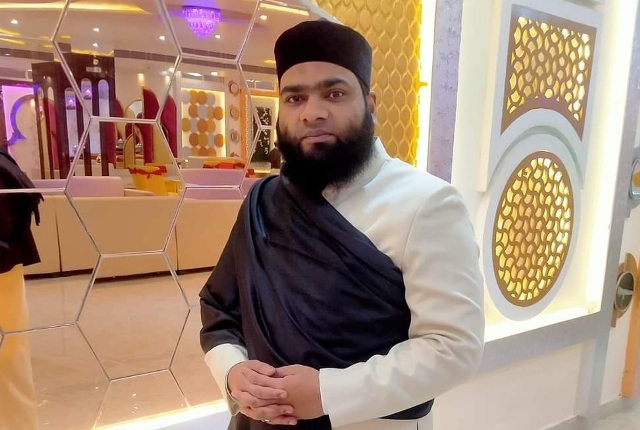Lakhwinder Singh, the head Granthi at Nanakmatta Sahib, Uttarakhand, says the principle of compassion for all and discrimination to none must be inculcated in every human being
Dharmguruon ko dharm ki hi bat karni chahiye, siyasat nahi karni chahiye (A religious guru must work in the domain of religion, not dabble into politics). Similarly, politicians should serve people rather than try to be representatives of religion. While I agree that the situation in our country might have become communally charged of late, I won’t say that religious leaders have failed in their duty.
Most gurus do foster communal harmony. Anyone who has truly understood the essence of divine will show compassion to others. Any religious leader who propagates hate towards other communities or talks about them in bad light isn’t a guru. A priest interested in politics isn’t serving God, only his or her own interests.
A guru is meant to guide everyone, same goes for the politician: both should not discriminate. A guru gives people roots, while a political leader gives them wings. Both should be above hatred. Guru Nanak Dev Ji has taught us that seva and daya (service and compassion) are the pillars of true Dharma. Sikhism believes that humanity is always bigger than community.
Across the world, wherever there is an upheaval, political or natural, you will find Sikhs at the forefront. Even right now, people from Khalsa Aid are helping those affected by war in Ukraine. A true religion is born out of compassion. So one of the first rules of Sikhism is non-discrimination and ensuring that we helped those who are in a difficult situation. Blessings for all, wellbeing of all – sarbat da bhala.

Religious leaders must give hope to the people. We cannot just sit and lament at the situation, we need to do something about it: spread compassion and love. If we want the mahaul of our country to change, then we need to slow down the hustle culture first of all. Only when families get time to sit and talk with each other can compassion truly flourish.
ALSO READ: ‘Religious Gurus Duty Bound To Build A Righteous Society’
If children don’t feel loved or heard how can we expect them to spread love and compassion to others, especially towards women? When a family is strong, it makes the mohalla strong and then the town and then the state, country and finally the world…you get the drift. World peace begins at home. I believe faith will always be stronger than political outlooks.
As about the ongoing hijab controversy, I feel that people should understand that the essence of religion lies not in our clothes, but in our hearts, especially in how we behave towards others. Jaisa des, waisa bhes means you understand the importance of culture as well along with religion. We have a school uniform, especially so we all understand that we are ‘uniform’ while accessing education.
So I feel that people from either side should not fight over these issues. However, I do feel sad about the condition of women in our country. Our mothers and sisters definitely need to be treated with so much more respect. We cannot hurt women in the name of protecting our own religion or trying to prove any other point in general.
As told to Yog Maya Singh


